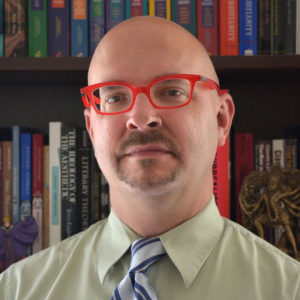Select an item by clicking its checkbox
Over the past few months, the entries in this blog series have attempted to provide guidance and insight related to the pedagogical challenges of teaching traumatic materials. The series was initiated to provide a sense of reassurance about facing these challenges. By discussing the range of challenges, the variety of ...
Over the past several years, there have been any number of events that have prompted professors to abandon their syllabi and lesson plans and create space for addressing events unfolding outside the walls of the classroom. This in-breaking of the contemporary, this pressure of the immediate, is often traumatic in ...
When I was invited to participate in this blog series, I was preparing to teach, for the first time, a course on the Catholic sex abuse crisis. I had wanted to teach the course for quite some time but was held back both by my sense of not understanding adequately ...
Is there a pedagogical responsibility to traumatize our students? I’m not thinking of some unbridled notion of “tough love” in grading, or an exaggerated insistence that actions have consequences, or even routine attempts to challenge assumptions and perspectives. Rather, is there a pedagogical responsibility to make students feel less ...
The questions that inform my teaching and scholarship focus on representations of violence. This means I spend a good deal of time studying such representations. I learned several years ago that my capacity to answer relatively straight-forward questions like “But is that film really gory?” or “Will I find that ...
